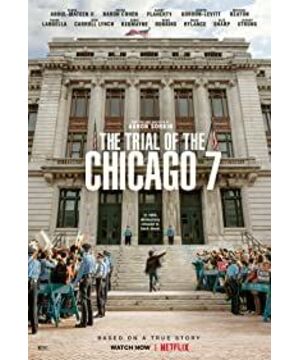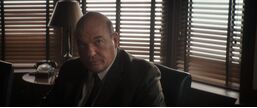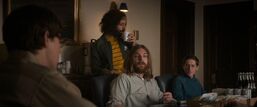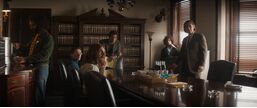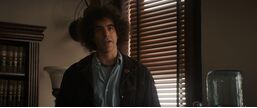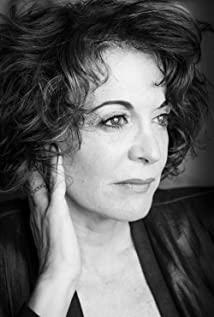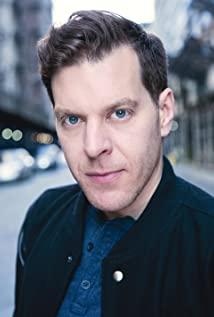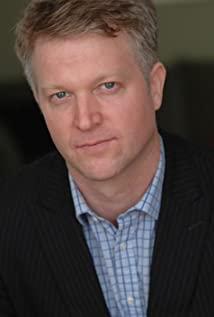"The Trial of the Chicago Seven" is a powerful work written and directed by Alan Sorkin, the first Hollywood screenwriter in 2020. The story follows the political trial of seven civil rights activists by the U.S. government in 1969. Alan Sorkin has shown extraordinary strength in editing, lines and characterization, which is amazing. The story is set in 1969, shortly after the transition of power between President Nixon and former President Johnson. When a new president takes office, it means that the original cabinet members should resign voluntarily. It is said that this is the tradition and etiquette of American politics. However, the previous Attorney General, Ramsay Clark, waited until the last hour before his successor, John Mitchell, to submit his resignation to Nixon. This angered Mitchell, who tried to fight back at Clark's blatant humiliation. So, Mitchell summoned Thomas Forlan of the FBI, and Forlan recommended to Mitchell his right-hand man Richard Schultz as the prosecutor of the trial. Mitchell's purpose was simple and crude: to convict and sentence a group of civil rights activists who Clark had found innocent during his reign and sentenced to ten years in prison. Schultz immediately pointed out that they did not commit a crime. Mitchell humiliated the young lawyer Schultz with an arrogant tone: Don't talk about this useless. Lao Tzu invited you here to convict them. It doesn't matter what the facts are. It is important that you do everything in your power to convict them. This is the direct cause of the film's story.
So what was that group of civil rights activists fighting for in the summer of 1968? The answer is, to end the Vietnam War. On November 22, 1963, President Kennedy was assassinated. The circumstances behind it have not yet been released. The mainstream view is related to his advocacy of ending the Vietnam War. After Kennedy was assassinated, his brother Robert Kennedy was also assassinated in the election. The brothers shared similar political stances, both advocating an end to the American war in Vietnam. After the Kennedy brothers were assassinated successively, the successor presidents of the United States, including Johnson and Nixon, did not support ending the Vietnam War, but continued to recruit troops to the Vietnam battlefield. The number of American soldiers killed in battle has been increasing, and women and children in Vietnam have also been killed during the war, which has caused a high level of war weariness in the United States. On August 26, 1968, the Democratic Convention was held in Chicago. The film's protagonists are determined to stage a demonstration in Chicago in order to get Democratic lawmakers running for the next US president to agree to end the war. However, the city government did not approve their demonstration. Not only did they not provide a venue for them, but 10,000 additional police officers were dispatched to fight the riot. In the end, the police provoked a riot. Going back to the beginning, Mitchell's new office has three fires, and the first fire to burn is to humiliate his Clark. Because Mitchell could not directly retaliate against Clark, he turned to bully the people involved in a case he handled, namely the Seven Gentlemen.
The powerful editing of the film not only compactly explains the plot, but also compares the different views of people from different positions on the same event, making the characters' language as lethal as bullets. No matter how many times you watch it, you'll still be struck by the condensed lines. In addition to editing, the most prominent feature of the film is Alan Sorkin's most prominent lines skills. The lines he arranges for the actors are very fitting to show the characters' characters, which allows each actor to speak. Be aware of the character's true heart. The lines have the function of revealing the character of the character. A writer who can do this is truly amazing. Mitchell, as the new attorney general, when he proposed to prosecute the Seven, Schultz mentioned the opposite opinion of the former attorney general Clark, Mitchell immediately interrupted him, reminding that Schultz is now Nixon The president's world is also his Mitchell's world. Mitchell repeatedly mentioned Clark's humiliation to him. He not only insulted Clark as a grandson and did not understand etiquette, but even raised it as unpatriotic. However, no matter how eloquent he is, it will not change the fact that he is narrow-minded and uses public power to vent his personal anger. Mitchell represents a type of person who, once he takes a certain seat, sees himself as a god above, thinks that he can be above the law, and can reverse right and wrong. Such people are even scarier than hooligans. Because hooligans are also punished by the law, and these people play with the law to punish others.
The second villain, I am afraid, is the assembly of all the judges that the audience hates. This judge is a symbol of the corrupt U.S. government, power, arrogance, preconceived positions, partiality, discrimination... As a judge who symbolizes fairness and justice, he is an old and paranoid old man. Ironically, what he said and did was the exact opposite of who he represented. He regards the public powers of the trial given him by the Constitution as a game of his own personal likes and dislikes. He discriminated against blacks and blatantly ruled against the defendants. During the trial, as long as the defense lawyer filed a complaint, it was dismissed. As long as it is unfavorable to the prosecution lawyer's interrogation and witness testimony, it will not be used, and even without waiting for the prosecution lawyer to file a complaint, the "wise" judge will take the lead in ruling "rejection". The judge in the film, who was supposed to be the incarnation of justice, plays a complete villain, symbolizing the abuse and blasphemy of American public power.
Abby Hoffman, the main representative of the Seven Gentlemen, is a eloquent and talk show talent. He mocked the judge's injustice several times during the trial. He and his partner, Jerry Rubin, put on the judge's clothes, saying it was a tribute to the judge, and when they took off their coats, they were wearing police clothes. It caused the audience to burst into laughter. This is a great irony - wearing a judge's black robe, but doing the same thing as the police who started the riots in the summer of 1968. When the judge doesn't let them speak, Abby can still figure out how to fight back in this humorous way, even if the power can't suppress the voice of resistance. The lines are undoubtedly one of the highlights of the film. The defense lawyers are all excellent at eloquence, but there is no choice but to have a judge with a crooked conscience. What you say is useless. David Dellinger, the fat man among the Seven Gentlemen, insisted on promoting reform in a non-violent way throughout his life, and always treated him calmly and politely in the face of obstruction by the police. However, Rao is such a person who is not even willing to pinch an ant to death, because when he was extremely speechless about the judge's ruling, he not only insulted the judge as a "rogue", but also beat the bailiff. The judge's trial was so obviously unfair that even the mildest and most rational person could not bear it.
Among the seven gentlemen, two were brought in to make up the count, so that the jury would lessen the guilt in their hearts when they tried the other five. The other five were divided into three groups, and there were differences among them. The differences between Tom Hayden and Abbie Hoffman are the most obvious. This also just shows that the three groups of them are not a gang at all, but the FBI people think they are a gang, just to convict them of conspiracy and treason.
Tom, who specializes in student movements, became indignant when he saw his friend Lenny Davis get his head shot by the police, and launched protesters: "If it's meant to be blood, let it be all over it. The whole city." The words were recorded and brought to court as evidence. Tom had always believed that the police had started the war, but he never thought that his words would become unfavorable evidence. Under the pressure of lawyer Bill, Tom also realized that there was ambiguity in his words, and he suddenly reflected: Did I start the riot? It was also at this point that Abby suddenly realized that Tom's original intention was to say, " Since we are destined to bleed, let the blood flow all over the city. It is our blood, not the blood of the police. " So, Abby and Tom reconciles. Abby is on trial as a defense witness. Facing the questioning of the prosecution lawyer Schultz, Abby, who has always been rebellious and eloquent, lost her words several times. He realized that when people just want to misinterpret each other as they understand it, there is no way to communicate. When Schultz asked him if you were contemptuous of your government, Abby replied, " My contempt is nothing compared to the contempt my government has shown me. " Schultz then pressed him, you come to Chicago Disrupting the assembly is not deliberately trying to conflict with the police. He was silent for a long time, and Schultz thought he was dumbfounded by his own question, but Abby said, "Give me a moment, friend. I've never been tried for my thoughts. "
Alan Sorkin also expresses the film's theme through witty verbal exchanges and appropriate silence , that is, language does not allow people to understand each other, but is the source of division. At the climax, Tom was the representative to conclude the speech. The judge didn't even hint, but made it clear that as long as he had a good attitude in admitting his fault and surrendered to the government, the judge would give you a green eye and commute your sentence. Tom was stunned. He repeated the judge's words in disbelief. He seemed to be incoherently excited by the special care he received. In fact, he was suffering from unspeakable sadness in his heart. He was expressing great irony in a carefully confirmed way. . Finally, Tom read a list. It is the name of the 4,752 American soldiers who have died in Vietnam since their trial. From the beginning of the film, it was recorded by Tom's partner Lenny. He wanted to remind everyone to remember that the original intention was to end the war. Every name on the list is a living being, and they are falling silently in Vietnam. Reciting the list has instead become the most powerful language, connecting everyone's hearts and understanding each other's hearts. Everyone's position, concept, idea and method are different, but they are all calling for a fundamental return, which is respect for life.
Although the judge convicted the five of them, the court protested the unfair trial with prolonged applause. Fairness and peace of mind.
View more about The Trial of the Chicago 7 reviews


